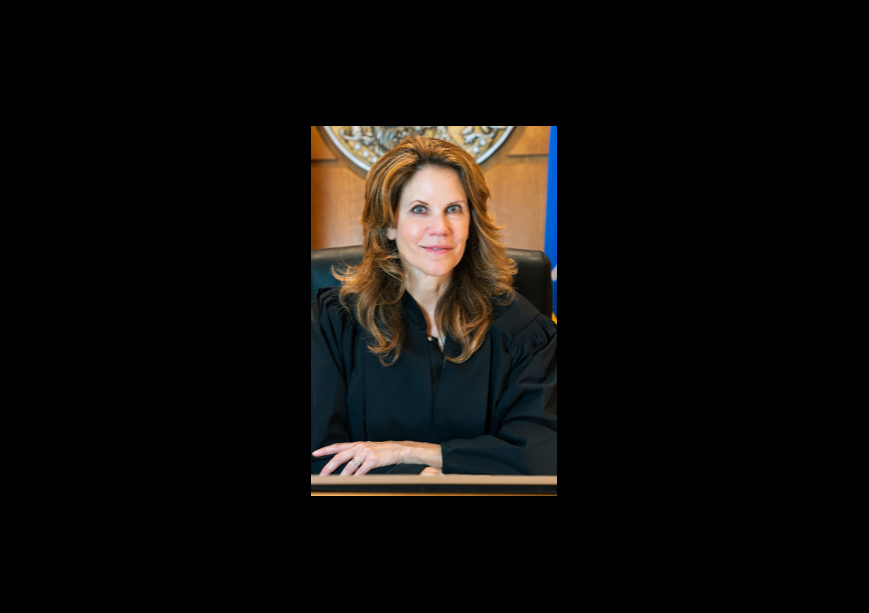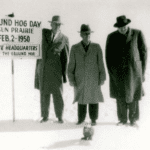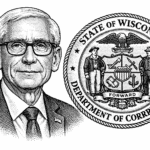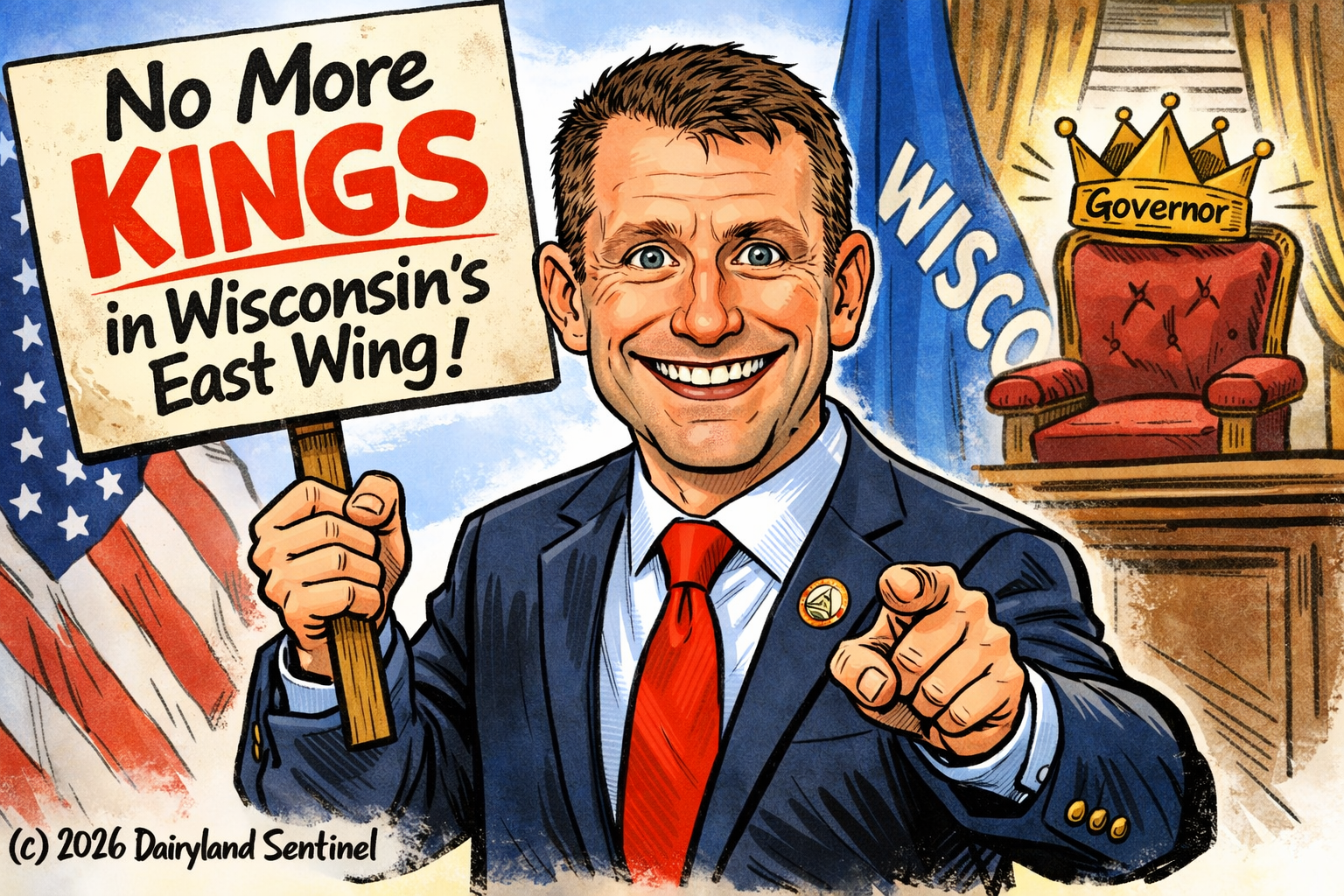Madison, WI – May 20, 2025 – Wisconsin Court of Appeals Judge Chris Taylor, a former Democratic state representative with a track record of far-left activism, has announced her candidacy for the Wisconsin Supreme Court, setting her sights on unseating conservative Justice Rebecca Bradley in April 2026.
“The law is a powerful tool for protecting Wisconsinites, holding people accountable, and making our state stronger,” she said, announcing her bid for the state’s highest court.
Wrapping her campaign in calls for fairness and accessibility, Taylor’s past—marked by liberal policy positions, sharp partisan rhetoric, and a cozy relationship with progressive causes—suggests a more calculated aim: to entrench a liberal stranglehold on the state’s highest court. From her days as Planned Parenthood’s policy director to her legislative battles, Taylor’s career is a playbook of left-wing priorities, raising alarms among conservatives who see her as an activist poised to legislate from the bench.
Taylor, 57, represented Madison’s ultra-progressive 76th Assembly District from 2011 to 2020. Appointed by Governor Tony Evers to the Dane County Circuit Court in 2020, she won election in 2021 and joined the Court of Appeals in 2023, running unopposed. Her Supreme Court bid, announced with a pledge to visit every corner of Wisconsin, is already shaping up as a polarizing contest, fueled by her history of championing abortion rights, gun control, environmental regulation, and labor rights. With Wisconsin’s judicial races increasingly mirroring national divides, Taylor’s far-left credentials and biting rhetoric toward conservatives make her a lightning rod in a state weary of costly court battles.
Abortion Rights: A Relentless Crusade
Taylor’s advocacy for unlimited abortion access is the bedrock of her public identity. As Planned Parenthood of Wisconsin’s public policy director from 2003 to 2011, she fought any restrictions on abortion, a mission she amplified in the legislature. She co-sponsored the 2019 RESPECT Women Act (Assembly Bill 1029), which sought to eliminate abortion regulations like mandatory ultrasounds. In a 2020 Capital Times column, she wrote, “This is about putting personal, private health care decisions where they belong—not in the Capitol, but between patients and their physicians.” She opposed a 2015 law requiring abortion providers to have hospital admitting privileges, calling it a veiled attempt to shutter clinics.
Gun Rights: A Foe of the Second Amendment
Taylor’s stance on gun rights is unabashedly restrictive, aligning with progressive demands for tighter firearm laws. In 2019, she co-sponsored Assembly Bill 417, requiring strict firearm storage in homes. The bill, which died in the Republican-controlled legislature, sparked backlash from Second Amendment advocates who saw it as encroachments on personal freedom and the Constitutional right to gun ownership.
Private Property Rights: Environmental Zeal Over Landowner Freedom
Taylor’s environmental advocacy often trampled private property rights, earning praise from groups like the Clean Wisconsin Action Fund but scorn from landowners. In 2013, she co-sponsored Senate Bills 138–142, imposing zoning restrictions, disclosure requirements, and county oversight on frac sand mining. Property owners decried these as government overreach limiting land use. Her support for Assembly Bill 766 (2019), which proposed evaluating the social cost of carbon emissions, signaled a willingness to prioritize environmental goals over property rights. The Wisconsin Farm Bureau has criticized her for favoring regulatory frameworks that diminish landowner autonomy, a concern amplified by her Sierra Club membership and endorsements from conservation groups. Her judicial philosophy, critics argue, could tilt toward green policies at the expense of property owners.
Act 10: A Fierce Adversary
Taylor’s opposition to Act 10, the 2011 law by Governor Scott Walker that gutted collective bargaining for public employees, defined her early legislative career. Elected in a special election amid the Act 10 protests, she entered the Assembly as a vocal critic, driven by her family’s union roots—her mother was a public school teacher, her grandfather a union electrician. In a 2013 Isthmus interview, she expressed dismay at the law’s impact, stating, “I was thinking: Why would I tolerate for my child—or anyone’s child—what Walker was doing to public education?” She co-sponsored bills to restore collective bargaining and backed a 2015 resolution affirming workers’ rights to organize, none of which passed. Former Governor Walker, now rallying Republicans against liberal justices, has warned that Taylor’s judicial role could threaten Act 10’s survival, especially after a lower court ruled it unconstitutional in 2024, with the case likely headed to the Supreme Court.
Other Public Policy Issues: A Progressive Laundry List
Taylor’s legislative record is a catalog of far-left priorities. She championed Medicaid expansion, increased public education funding, and voting rights protections, consistently clashing with Republican agendas. In 2019, she co-sponsored Assembly Bill 215 to reform the Wisconsin Conservation Congress’s rule-making, and Assembly Bill 768 to create an Office for Equity and Inclusion. Her push for legalizing recreational marijuana (Assembly Bill 220, 2019) and requiring racial impact statements for criminal justice bills (Assembly Bill 260, 2015) marked her as a social justice advocate to supporters but alienated conservatives who viewed these as radical. She also backed public financing of Supreme Court campaigns (Assembly Bill 265, 2015), a move critics argue aimed to boost progressive candidates. Her environmental bills, like those promoting sustainable farming grants, underscored her faith in government intervention,m.
Past Endorsements: A Progressive Darling
Her 2023 Court of Appeals campaign boasted endorsements from labor unions (AFSCME, Madison Teachers Inc.), environmental groups (Clean Wisconsin Action Fund), and progressive figures like former Justice Jill Karofsky and retired Justice Shirley Abrahamson.
Comments on Conservatives: A Trail of Barbs
Taylor’s rhetoric toward conservatives and Republicans has been consistently sharp, often crossing into personal attacks. In a 2013 Isthmus profile, she mocked a Republican-backed mining bill, saying “her five-year-old could have written a better bill.”
In her Supreme Court announcement, Taylor targeted Justice Bradley, accusing her of pushing a “right-wing agenda” in her writings, a charge conservatives argue exposes her own ideological slant.
Taylor’s public comments are often pointed. She criticized Scott Walker’s education cuts in the 2013 Isthmus interview, tying them to Act 10’ as a broader assault on public schools. In a 2017 Assembly floor speech, she called out Assembly Speaker Robin Vos’s rule changes, accusing him of suppressing Democratic participation and fostering “one-party rule, a dictatorship.” Her tenure was filled legislative pushback against Walker-era policies, land she supported a 2013 resolution opposing a constitutional convention for a balanced budget.
Socialism: Flirting with the Label
In 2015, she co-sponsored Assembly Joint Resolution 120, endorsing rights to healthcare, fair wages, and a clean environment—priorities championed by democratic socialists like Bernie Sanders. While she never called herself a socialist, her progressive agenda and Democratic Party ties have led critics, including the Wisconsin Republican Party, to label her as sympathetic to far-left ideologies. X posts have called her a “closet socialist.”
Business Group Wary
Wisconsin Manufacturers and Commerce (WMC), the state’s largest business lobby, has been critical of Taylor’s legislative record, though direct comments on her are sparse. WMC, a frequent backer of conservative candidates, opposed Taylor’s environmental and labor bills, particularly her support for frac sand mining regulations and collective bargaining restoration. In a 2019 WMC voter guide, Taylor’s district received low marks for her votes against tax cuts and deregulation, aligning with WMC’s broader critique of Democrats.
The Stakes: A Court on the Brink
Wisconsin’s Supreme Court, with its liberal 4–3 majority secured in 2023 and bolstered by Susan Crawford’s April victory, is a battleground for ideological control. Taylor’s candidacy aims to solidify this majority, but her far-left record—abortion advocacy, gun control, environmental overreach, and anti-Act 10 fervor—could alienate moderates. Conservatives, backed by groups like Americans for Prosperity, are rallying, with Walker framing the election as a defense of Act 10 and Republican legacies. Taylor’s fundraising, likely fueled by liberal donors like EMILYs List and Planned Parenthood, aims to match the $100 million spent in 2025. Her endorsements and rhetoric, from Clinton to Crawford, tie her to progressive elites, while her barbs at Walker, Vos, and Bradley fuel accusations of partisanship.
Taylor insists her judicial role demands impartiality, but her past suggests otherwise. Her legislative activism, progressive endorsements, and disdain for conservative policies paint a picture of a judge more interested in ideology than neutrality. As Wisconsin braces for another bruising judicial race, voters face a stark choice: embrace Taylor’s vision of a left-leaning court or reject what critics call a blatant power grab by a lifelong activist.
For Further Information:
- Wisconsin Court System: https://www.wicourts.gov
- Milwaukee Journal Sentinel: https://www.jsonline.com/story/news/politics/2025/05/20/liberal-chris-taylor-to-challenge-rebecca-bradley-for-supreme-court/73765013007/
- Wisconsin State Journal: https://madison.com/news/state-regional/government-politics/chris-taylor-wisconsin-supreme-court-candidacy-rebecca-bradley/article_0f7b7e1a-0f5e-11ef-bd7b-0b7e1f7e2e7e.html
- WisPolitics: https://www.wispolitics.com/2024/taylor-passing-on-state-supreme-court-bid/
- Wisconsin Legislative Documents: https://docs.legis.wisconsin.gov/2019/related/author_index/assembly/taylor_c_1
- Capital Times: https://captimes.com/opinion/column/rep-chris-taylor-with-roe-v-wade-under-threat-wisconsin-must-pass-the-respect-women-act/article_0c8e8b9e-5f7e-11ea-9e7e-6f0e1c7e1c7e.html
- Isthmus: https://isthmus.com/news/cover-story/the-fearless-chris-taylor/
- PolitiFact: https://www.politifact.com/personalities/chris-taylor/
- Chris Taylor for Justice: https://www.chrisforjustice.com/endorsements
- AP News: https://apnews.com/article/evers-appoints-state-rep-chris-taylor-circuit-court-0c8e8b9e5f7e11ea9e7e6f0e1c7e1c7e
- Ballotpedia: https://ballotpedia.org/Chris_Taylor_(Wisconsin)












